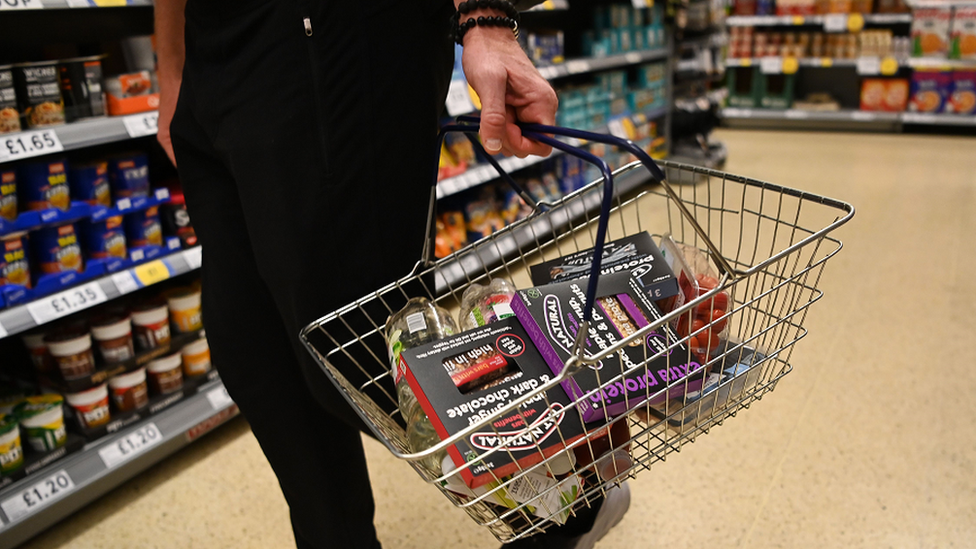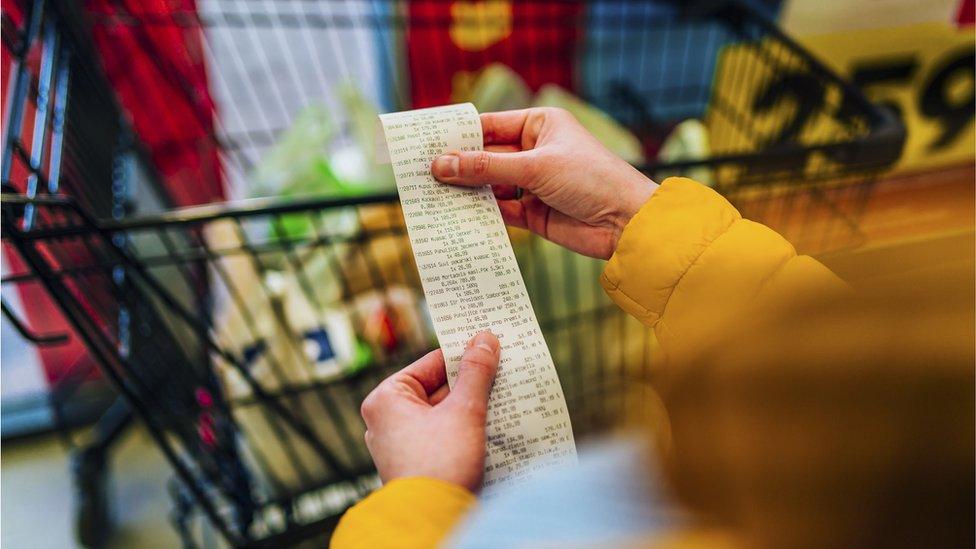Food price inflation slows to lowest level this year - BRC
- Published

New figures suggest food price inflation has slowed to its lowest level this year as prices of oils, fish, and breakfast cereals fall.
According to the British Retail Consortium (BRC) and NielsenIQ retail analysts, food inflation slowed to 13.4% in July. It was 14.6% in June.
But overall, shop prices are still 7.6% higher this July than a year ago.
BRC chief Helen Dickinson said the figures were "cause for optimism" but warned of supply chain issues ahead.
Russia's withdrawal from the Black Sea Grain Initiative and targeting of grain facilities, as well as rice export restrictions from India, were "dark clouds on the horizon", she said.
"We expect some global commodity prices to rise again as a result, and food prices will be slower to fall."
According to the BRC trade body, the fresh numbers marked a third consecutive month of slowing and the lowest level of food inflation since December last year.
Clothing and footwear were among the beneficiaries last month as retailers "mitigated wet weather" with larger discounts, Ms Dickinson said.
Mike Watkins, head of retailer and business insight at NielsenIQ, admitted the outlook was improving.
"Shoppers continue to change how they shop as part of their coping strategies," he said.
"This includes shopping at different retailers, buying lower priced items, delaying spend or only buying when there are promotions."
In the last year or so, soaring food and energy bills have helped drive inflation up.

How can I save money on my food shop?
Look at your cupboards so you know what you have already
Head to the reduced section first to see if it has anything you need
Buy things close to their sell-by-date which will be cheaper and use your freezer

- Published29 May 2023

- Published28 May 2023
